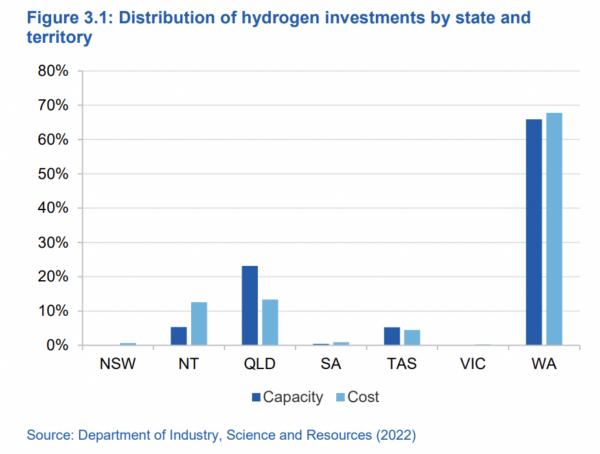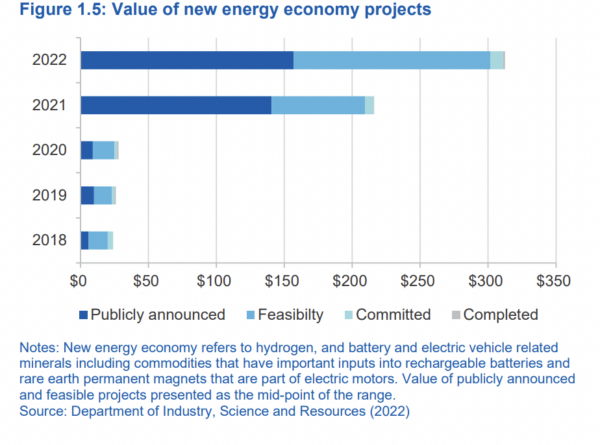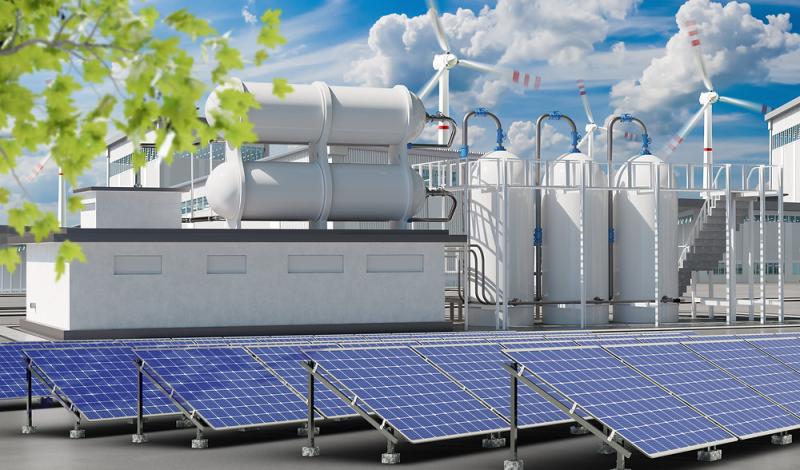The Australian government has today opened to Expressions of Interest for its $2 billion (USD 1.28 billion) Hydrogen Headstart program, which seeks to bridge the commercial gap between the cost of producing green hydrogen and the market price for large-scale projects.
“We currently have the largest [hydrogen] project pipeline of any single country in the world,” the Clean Energy Council’s Policy Director for Decarbonisation, Anna Freeman, said. “But proponents have been finding it extremely challenging to convert this renowned potential into commercially viable projects.”

Even this may be an understatement, with the federal government’s Resources and Energy Major Projects 2022 report noting that just one hydrogen project reached the ‘committed’ stage last year. Moreover, only three out of 16 projects included in last year’s report progressed beyond the feasibility stage — of which one was a pilot program.
This is to say, there is a stark chasm between the plethora of hydrogen project announcements made in the last years and the reality on Australian ground. This chasm has become a major source of alarm with the introduction of the US’ massive renewables support program, the Inflation Reduction Act, which includes substantial green hydrogen subsidies. Likewise, Europe and other nations have brought in significant policies and programs to compete for the burgeoning market, which is estimated to be worth trillions in coming decades.

The Hydrogen Headstart program is intended to help Australian keep a foot in the global door. The program was co-designed by the Commonwealth Department of Climate Change, Energy, the Environment and Water and the Australian Renewable Energy Agency (ARENA), which will administer the program.
The program is expected to support a minimum of two large-scale projects with at least 50 MW of capacity over a 10-year period, via a production credit per kilogram of hydrogen produced, the Clean Energy Council said.
The EOI applications will be open until November 10, 2023. The proponents of shortlisted projects will then be invited to develop full applications.
This content is protected by copyright and may not be reused. If you want to cooperate with us and would like to reuse some of our content, please contact: editors@pv-magazine.com.









1 comment
By submitting this form you agree to pv magazine using your data for the purposes of publishing your comment.
Your personal data will only be disclosed or otherwise transmitted to third parties for the purposes of spam filtering or if this is necessary for technical maintenance of the website. Any other transfer to third parties will not take place unless this is justified on the basis of applicable data protection regulations or if pv magazine is legally obliged to do so.
You may revoke this consent at any time with effect for the future, in which case your personal data will be deleted immediately. Otherwise, your data will be deleted if pv magazine has processed your request or the purpose of data storage is fulfilled.
Further information on data privacy can be found in our Data Protection Policy.